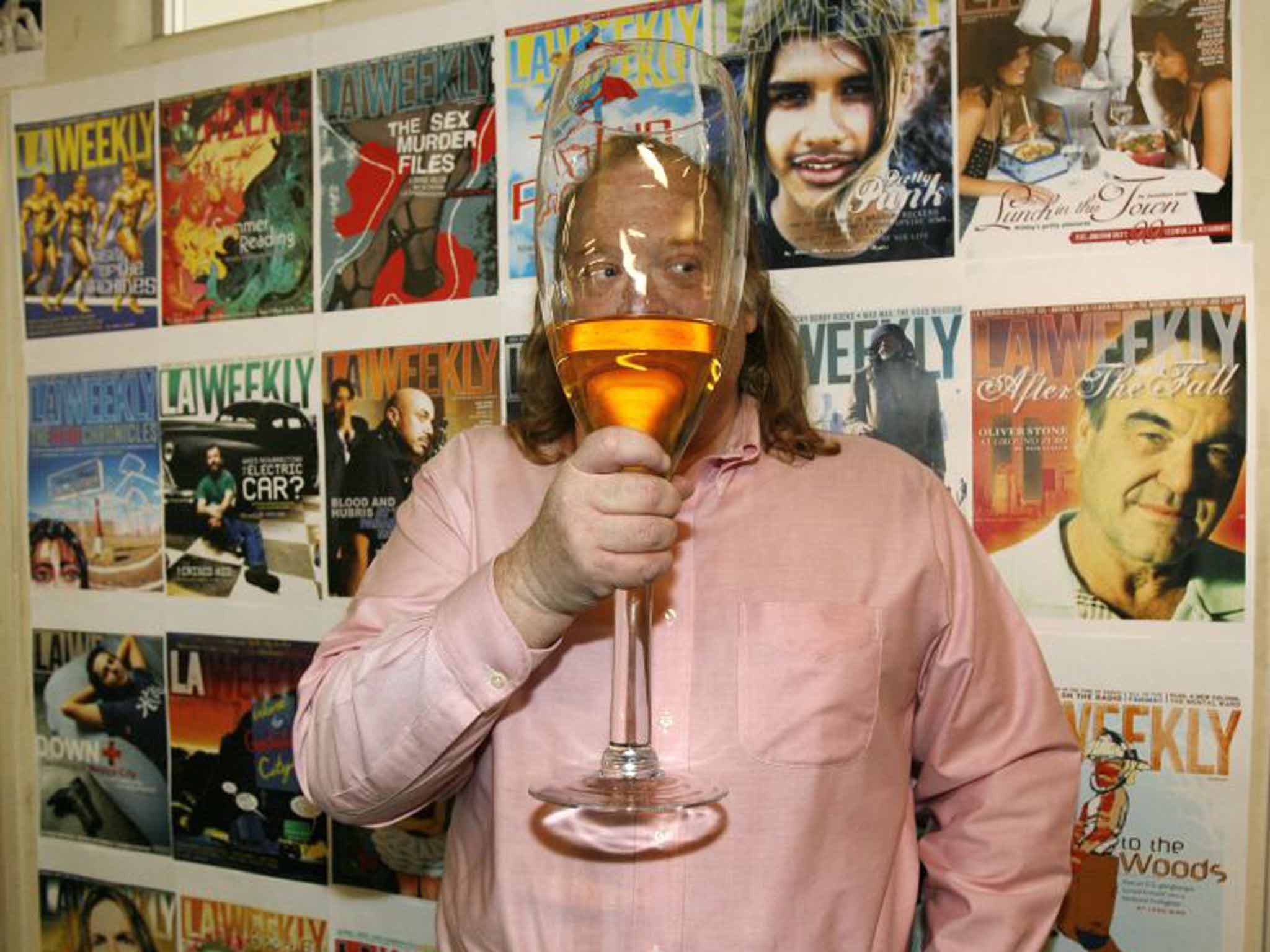Undercover food critics: How hard is it to remain anonymous?
Pulitzer Prize-winning restaurant reviewer Jonathan Gold has shrugged off his disguise. Christopher Hirst spills the beans

Your support helps us to tell the story
From reproductive rights to climate change to Big Tech, The Independent is on the ground when the story is developing. Whether it's investigating the financials of Elon Musk's pro-Trump PAC or producing our latest documentary, 'The A Word', which shines a light on the American women fighting for reproductive rights, we know how important it is to parse out the facts from the messaging.
At such a critical moment in US history, we need reporters on the ground. Your donation allows us to keep sending journalists to speak to both sides of the story.
The Independent is trusted by Americans across the entire political spectrum. And unlike many other quality news outlets, we choose not to lock Americans out of our reporting and analysis with paywalls. We believe quality journalism should be available to everyone, paid for by those who can afford it.
Your support makes all the difference.The "mystery masticator" is one of the odder aspects of restaurant reviewing. In the US, for instance, there are certain critics who pretend to judge food and service behind a mask of anonymity. I say "pretend" because they are often readily identifiable – despite donning the necessary wig and false moustache and assuming a fictitious identity.
Take the case of Jonathan Gold, the Pulitzer Prize-winning restaurant critic of the Los Angeles Times. A couple of days ago, he ditched the subterfuge and appeared au naturel on the cover of his newspaper, where he declared his weariness at "the pretence of anonymity". Since Gold proved to be a substantial, moustachioed chap somewhat along the lines of David Crosby, of Crosby, Stills and Nash, this pretence was surely on the thin side. It is hard to imagine him successful adopting a secret persona, unless it happened to be that of David Crosby.
A restaurant critic more successful at disguise was Ruth Reichl, who acted in that capacity for The New York Times during the Nineties. Her tasting characters included Brenda, "a red-haired ageing hippie", "a blonde divorcée" called Chloe and, oddest of all, her deceased mother Miriam. Her reasons went beyond anonymity. "Every restaurant is a theatre," she said, they offer "the opportunity to become someone else, at least for a little while".
To me, at least, this play-acting seems to inflict an additional, worrisome burden on the critic. When I review restaurants for The Independent, I find I have enough on my plate assaying the quality of the rabbit cassoulet without attempting to do it while maintaining, say, a terrible Scottish accent.
At 6ft 4in, my scope for disguise is also somewhat limited, unless I chose to don a fake beard and impersonate the equally tall critic Jay Rayner, though this would slightly defeat the object of the exercise.
On this side of the pond, the best-known secret reviewer is the Guardian's Marina O'Loughlin, who has managed to pull off the anonymity act with aplomb. In her byline picture, she holds a plate in front of her face. When she was made restaurant reviewer of the year in the Fortnum & Mason Food Awards, runners-up Jay Rayner and Giles Coren picked up her trophy. Hers is a far more successful effort than that of Nick Lander, whose reviews in the Financial Times appear under the silhouette of a bespectacled bald man. Unfortunately, when you tap "Nicholas Lander" into Google images, you get a whole page devoted to a bald man with specs.
It is hard to see what benefit a critic gains from anonymity. If the staff starts treating you like royalty, making a tremendous fuss and offering dishes you haven't ordered, then surely that's a point worth making in your review?
In my experience, it makes no difference to your food if it emerges that you're reviewing the meal you're consuming. I am often obliged to spill the beans when a waiter notices me making notes at the table. (Unlike some reviewers, I refuse to scuttle off to the toilet for annotation purposes, an unwholesome habit that might attract unwonted attention.) Usually, the reaction is no more than "Oh?" or "When is it going to appear?" Occasionally an informative chat follows. If a restaurant reviewer feels happier scoffing in mufti then no great harm is done, though ironically the attempt at anonymity seems to be a bit of an ego trip.
A far more common impersonation occurs behind the kitchen door. When you see a famous chef on television, signing books or performing the multitude of activities expected of a celebrity, who do you think is cooking in the restaurant that bears his or her name? The answer is a chef de cuisine, equally or more adept, but lacking the vital quality of fame. On many occasions, anonymous reviewers must have consumed the creations of far more anonymous chefs. At least the food should have real character.
Join our commenting forum
Join thought-provoking conversations, follow other Independent readers and see their replies
Comments